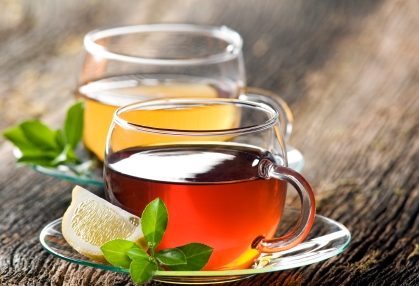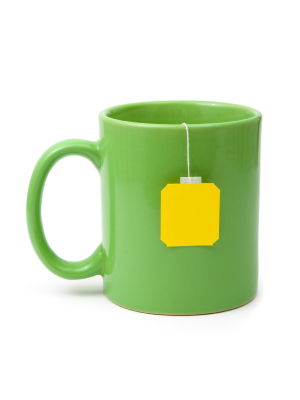
If man has no tea in him, he is incapable of understanding truth and beauty. ~Japanese Proverb
There is nothing like a good cup of tea. On that there is little dispute. Growing up in Britain, I was introduced to tea at an early age. It was impossible to avoid it. We had tea after every meal, twice in between meals (elevenses and afternoon tea), and additional cups whenever anyone came for a visit. The news that tea might actually be good for you came as a welcome relief to those of us who grew up steeped in the stuff. At last—something enjoyable that wasn’t bad for you.
What Makes a Good Cup of Tea?
From George Orwell to Wikihow, many have weighed in over the years with an opinion on how to make the best cup of tea—pronouncing on such details as loose leaves vs teabags, why it is uncouth to drink from the saucer, and why you should never put the milk in first. The details of what makes a good cup of tea are hotly debated and ultimately a matter of personal preference. Properly boiled water and good quality tea are vital, warming the teapot is helpful, and allowing the tea to properly infuse makes a big difference to the final outcome (no cutting corners by squashing a teabag against the side of the cup). But what makes a cup of tea good for you may be harder to figure out.

What Makes Tea Good For You?
Polyphenols in tea have been shown to have antioxidant properties that may help prevent certain diseases such as cancer and heart disease. But not just any old tea will do. Research presented at a recent meeting of the American Chemical Society showed that the polyphenol content of sweetened bottled teas pales into insignificance compared with a single cup of good black or green tea. It could take up to 20 bottles of certain tea drinks to reach the polyphenol levels in a single cup of hot tea. So be selective.
In addition to the quality of the tea itself, the activity and efficacy of polyphenols once the tea has been drunk is another factor that must be considered. The review “Metabolic Fate of Polyphenols in the Human Superorganism” (van Duynhoven et al. (2010) PNAS, Jun 25) discusses various ways of studying the fate of polyphenols in the human body, emphasizing a potential role for gut bacteria in metabolizing them. Even although polyphenols in tea and other drinks have been associated with reduced risk of certain diseases in epidemiological studies, exactly how/if they become active and effective in the body remains the subject of research. One suggestion is that bacteria in the gut may help convert dietary polyphenols into bioactive forms. Because the gut population is highly individual, the ability to create these bioactive forms may also be variable, depending on the genes represented in each individual’s microbial population (Gross et al, (2010) J. Agric. & Food Chem, 58, 10236-462). The complexity of the microbiome and its role in individual nutrition, identity, health and disease are only beginning to be unraveled. The intriguing possibility of individualized abilities to metabolize polyphenols, and possibly other substances, based not on human genes but on microbial contributions gives a whole new meaning to the phrase “ it’s not my cup of tea”
So what makes a cup of tea good for you? Maybe a part of the clinical answer is the particular genetic profile of the organisms in your gut. But surely tea drinkers everywhere would assert that it is so much more than that? It is the comfort of a warm cup in your hands on a cold afternoon, the opportunity to sit down and rest for a few moments during your day, and the company of friends during a teabreak. These also contibute to the satisfaction of a really good cup of tea—made with appropriately boiled water and steeped for exactly the right amount of time.
Literature Cited
van Duynhoven, J., Vaughan, E., M. Jacobs, D., A. Kemperman, R., van Velzen, E., Gross, G., Roger, L., Possemiers, S., Smilde, A., Dore, J., Westerhuis, J., & Van de Wiele, T. (2010). Microbes and Health Sackler Colloquium: Metabolic fate of polyphenols in the human superorganism Proceedings of the National Academy of Sciences DOI: 10.1073/pnas.1000098107
Gross G, Jacobs DM, Peters S, Possemiers S, van Duynhoven J, Vaughan EE, & van de Wiele T (2010). In vitro bioconversion of polyphenols from black tea and red wine/grape juice by human intestinal microbiota displays strong interindividual variability. Journal of agricultural and food chemistry, 58 (18), 10236-46 PMID: 20726519
Isobel Maciver
Latest posts by Isobel Maciver (see all)
- 3D Cell Culture Models: Challenges for Cell-Based Assays - August 12, 2021
- Measuring Changing Metabolism in Cancer Cells - May 4, 2021
- A Quick Method for A Tailing PCR Products - July 8, 2019

Tea is good for me because when I have time to drink it, I can also put my feet up, do some knitting and relax by the fireplace on a cold winter’s night.
You are correct Isobel, there is nothing comparable to a hot cup of tea…